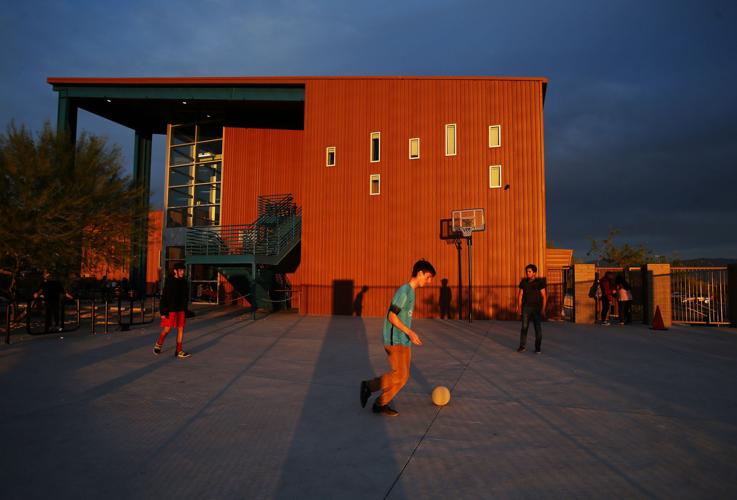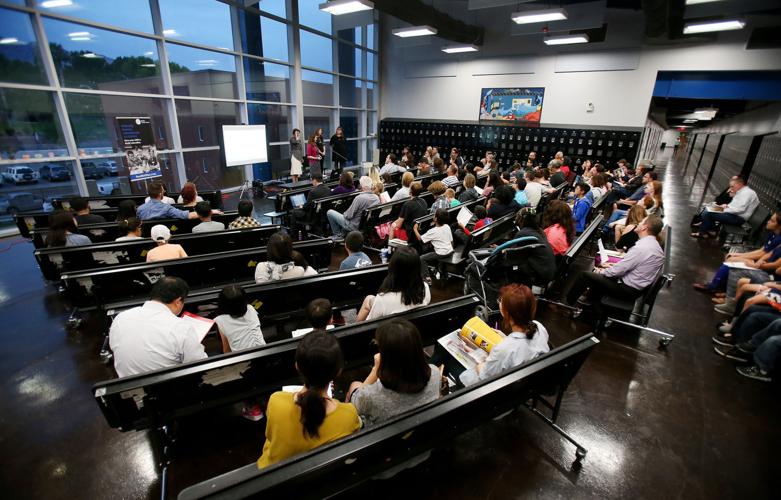More than 100 prospective and hopeful parents and children filled the lobby of BASIS Tucson North Tuesday evening.
The Tucson charter school, which serves more than 1,000 students in grades five through 12, opened its doors for a campus tour and information event to those seeking to access its rigorous education.
“If you want to come to BASIS, all I ask is that you work hard,” head of school Erin Paradis told a crowd of parents and students.
BASIS Tucson North and its sister schools are nationally ranked for high academic performance and known for its challenging curriculum. The school is part of a network of charter and private schools with campuses in Texas, Washington D.C., California, New York and Shenzhen, China.
Parents and family members of students wanted to know about the average class size, which Paradis said is about 30 to 31, whether they would need to reapply if they applied last year — the answer is yes — and whether the school supports different learning styles.
Jameson Murphy, 10, who aspires to be an inventor, attended the open-house event with his parents, Shannon and Patrick Murphy. He already has college goals: He wants to study engineering at either Caltech or MIT.
“He is very interested in science,” his mother said. For them, a strong science program is a must. But the parents also say they wouldn’t want Jameson to lose his Spanish skills, having become fluent through a Spanish immersion program at his current school.
With the challenging academics comes strong academic support, said Julia Toews, vice president of academics for the BASIS network. A school could not have one without the other.
The support system includes diagnostic testing to figure out where a student is struggling, academic coaching, student and parent hours, tutoring, homework buddies and labs for math and writing.
School officials also wanted to showcase what’s beyond BASIS’ reputation for rigorous academic standards. Toews said contrary to popular belief, the school has athletic programs, arts, prom, school dances and other extracurricular activities.
There are traditional clubs, such as math and geography clubs, but there are also clubs for women in STEM, “Doctor Who” fans, and dancers.






